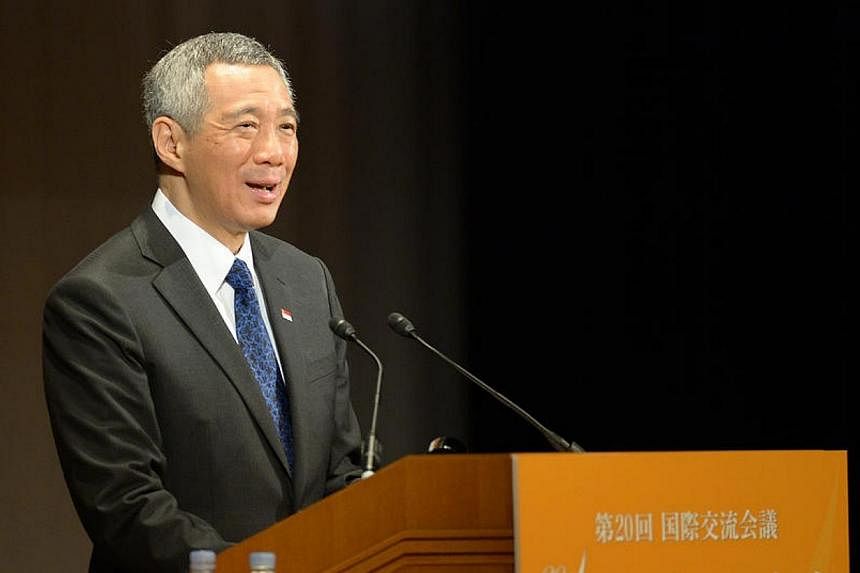Tokyo - Japan must remain a part of the Trans-Pacific Partnership (TPP) free trade agreement if it wants to play a key role in Asia's future, Prime Minister Lee Hsien Loong said on Thursday.
The 12-nation trade pact forms "the nucleus and the spark" of an Asia-Pacific-wide free trade arrangement, Mr Lee said during a dialogue session at the 20th Nikkei Conference held in Tokyo, where he also gave a keynote speech.
Noting that the TPP is "the mechanism by which many important Asia-Pacific countries are coming together to integrate with one another", Mr Lee said Japan should not be excluded from the arrangement.
"It you want to have active diplomacy, if you want to have influence in the region, if you want to contribute to the prosperity of the region, you cannot be outside the TPP," he said.
His remarks come after ministers from the Asia-Pacific region wrapped up a two-day meeting in Singapore on Tuesday, in which they said significant progress was made towards an agreement on the TPP.
One of the final sticking points has been Japan's reluctance to remove tariffs on key agricultural imports such as rice, beef and dairy products.
But Mr Lee noted that the status quo of protecting these agricultural industries "is not sustainable".
"The average age of a farmer in Japan is 67, 68 years old. It is very difficult to farm and plant rice when you are 68 years old," he said.
"So you have to change.... even without the TPP, you will be changing, and you have to find some way to manage this change. And also (to) take care of the rural population and the agricultural workers, who (have been) dependent on your protection for so long."


